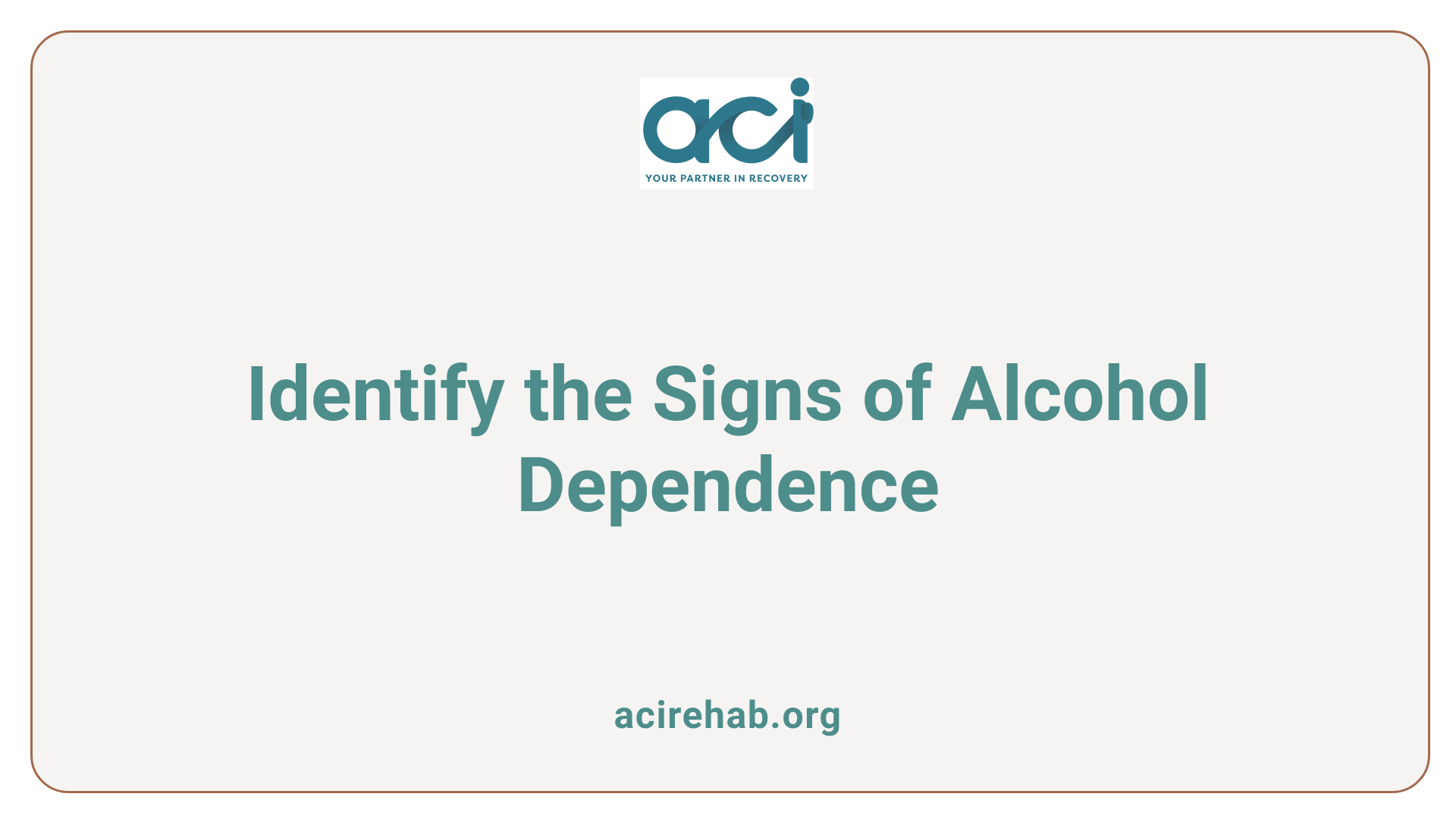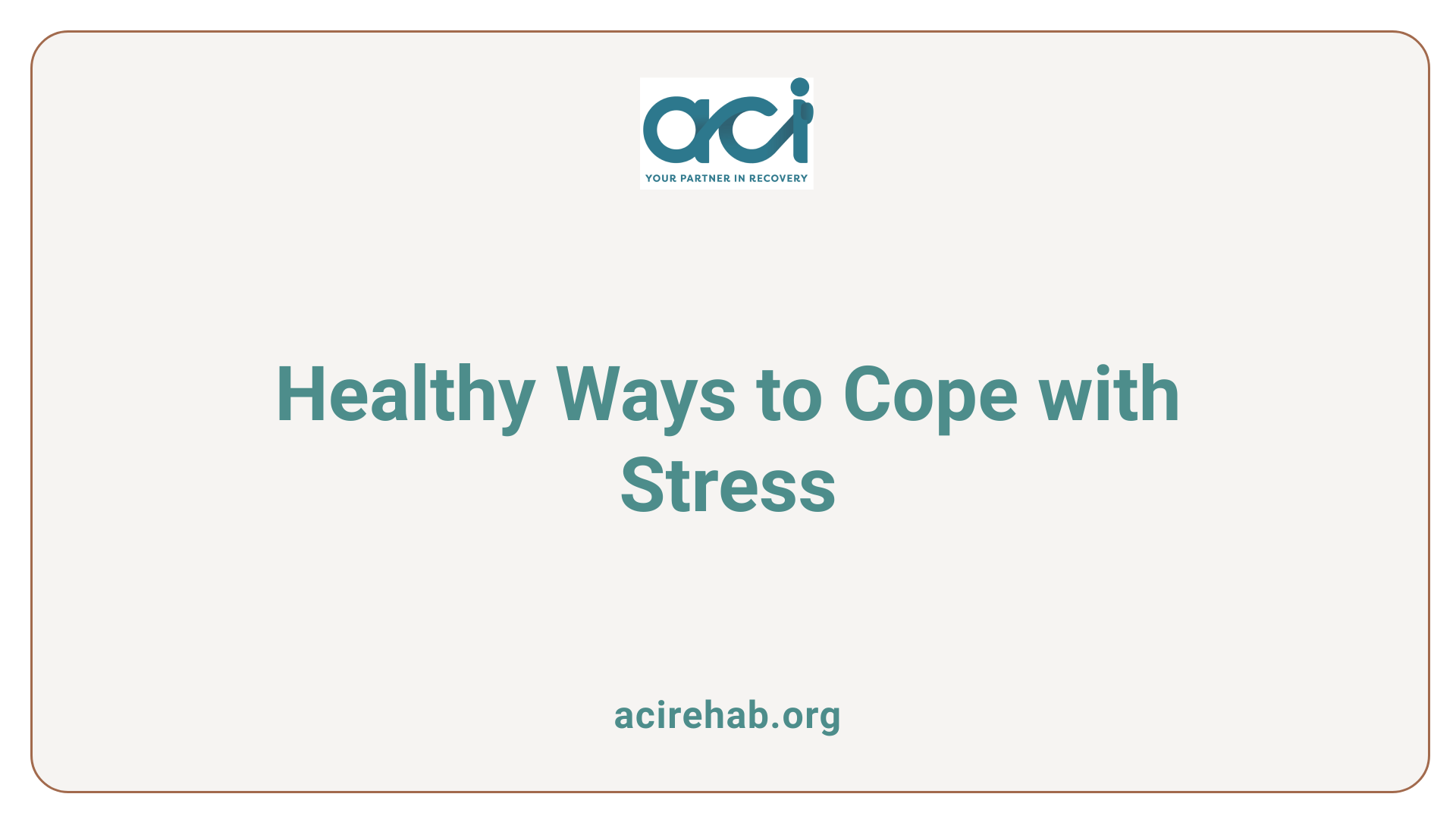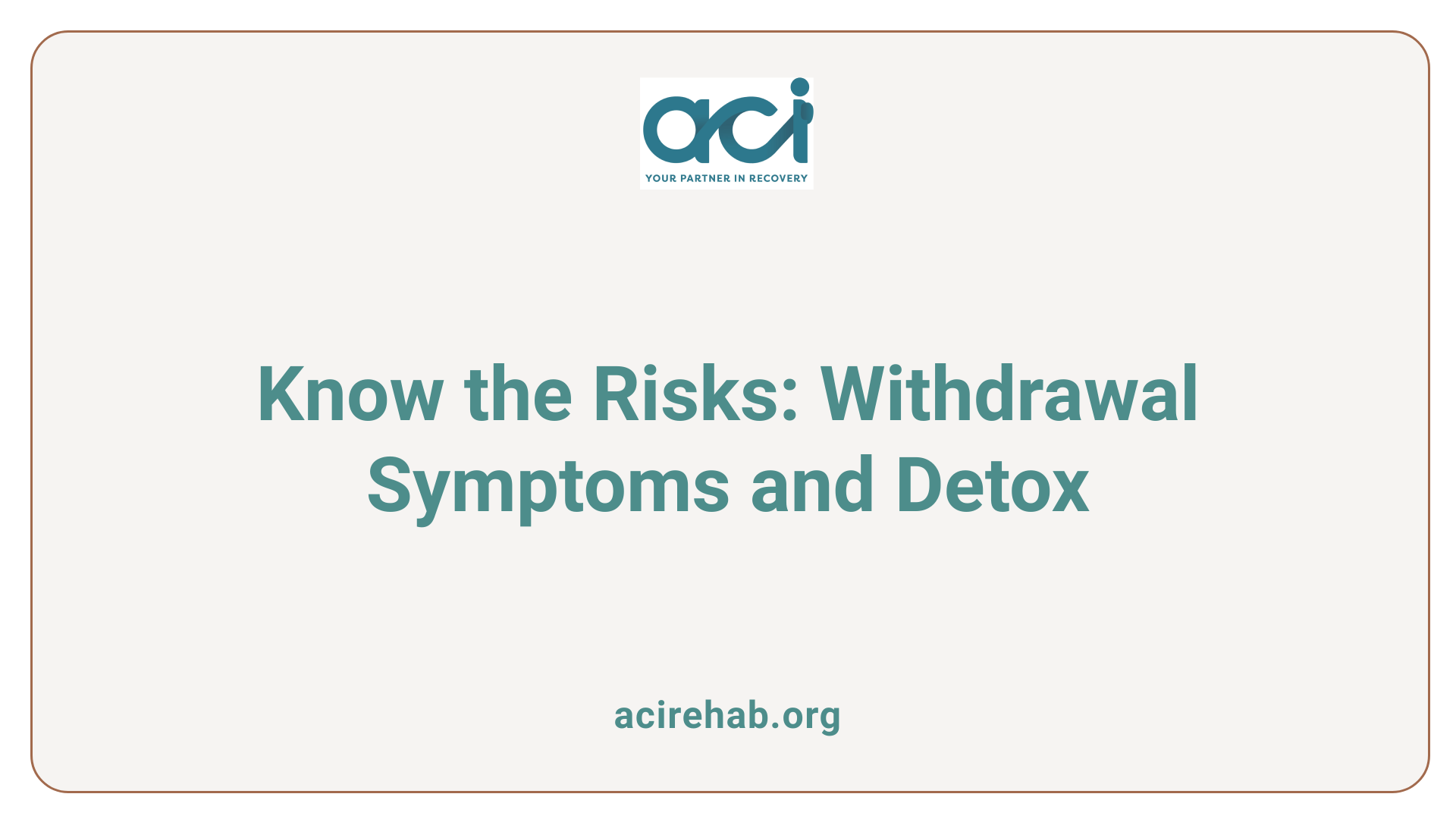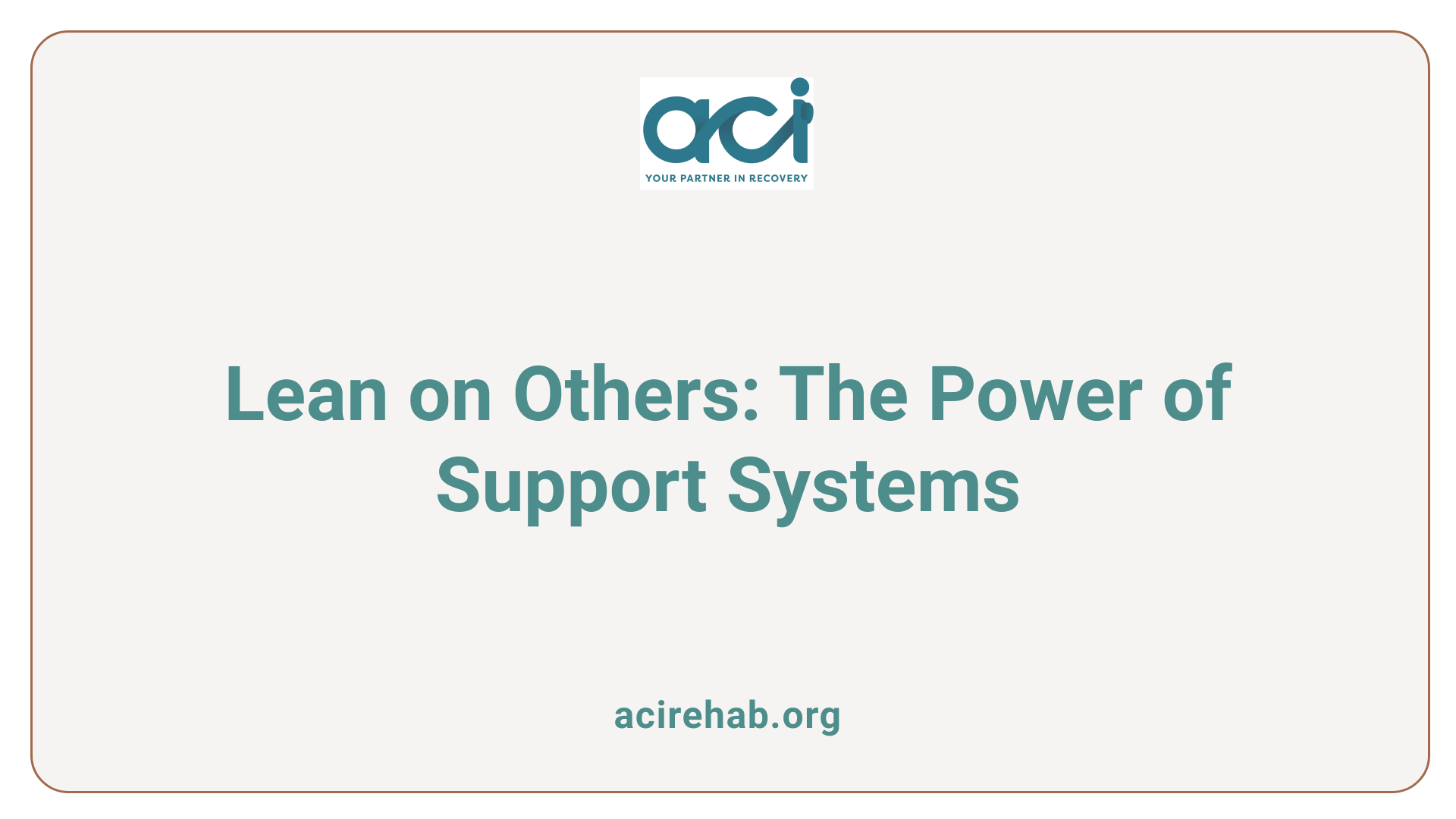Understanding the Journey to Sobriety
Quitting alcohol can often seem like an overwhelming task, especially for those who have developed strong drinking habits. However, the journey to sobriety is not only possible but also rewarding in terms of improved physical health, better relationships, and personal satisfaction. This article explores essential strategies, offers valuable resources, and provides insights into understanding and overcoming alcohol dependence.
Recognizing and Addressing Alcohol Dependence

What are some signs of alcohol dependence?
Recognizing alcohol dependence is crucial for effective intervention. Common signs include:
- Neglecting responsibilities: Prioritizing alcohol over work, family, or social obligations.
- Binge drinking: Consuming excessive amounts of alcohol in a short period.
- Lying about consumption: Hiding drinking habits or downplaying the amount consumed.
- Experiencing blackouts: Loss of memory regarding events during periods of heavy drinking.
- Continuing despite problems: Drinking despite relationship issues or health problems linked to alcohol.
What are initial steps to quit drinking?
Starting the journey to sobriety involves a few key steps:
- Set a quit date: Establish a specific date to stop drinking, giving yourself time to prepare.
- Know your reasons: Clearly write down motivations for quitting, such as health improvement or better relationships.
- Create a detailed plan: Outline strategies to combat cravings and avoid triggers. Consider support systems, such as friends, family, or support groups.
- Seek professional guidance: Consult healthcare providers for tailored advice and assistance, particularly if withdrawal symptoms are anticipated.
Why is self-awareness important in quitting?
Self-awareness is vital in managing alcohol consumption. Acknowledging one’s relationship with alcohol helps identify patterns and triggers that lead to drinking. Keeping a diary of drinking habits can enhance awareness, making it easier to confront behaviors that need change. The combination of self-recognition and supportive resources, such as Alcoholics Anonymous, significantly boosts the likelihood of successful sobriety.
Managing Stress Without Alcohol

How can you stop drinking alcohol to cope with stress?
To stop drinking alcohol as a response to stress, the initial step is identifying your stress triggers—these can be emotional, social, or situational.
- Recognize Your Triggers: Take time to track when you feel the urge to drink and understand what leads to these feelings. Are there specific people or places involved?
- Avoidance Strategies: Once you know your triggers, strategize ways to avoid them. For instance, if certain social settings prompt drinking, it may be helpful to limit your exposure to those environments initially.
Healthy Coping Strategies
Developing positive coping mechanisms is pivotal in this journey:
- Engage in Hobbies: Explore new interests that can replace drinking, such as sports, art, or volunteering.
- Practice Mindfulness: Techniques such as deep breathing, meditation, or yoga can help manage stress without the need for alcohol.
- Stay Active: Physical activities not only distract you from stress but also release endorphins that naturally improve your mood.
Importance of Support Systems
Having a support system can significantly ease the path to reducing alcohol consumption:
- Talk to Trusted Friends: Sharing your feelings and goals with supportive friends or family can provide encouragement.
- Join Support Groups: Engaging with groups like Alcoholics Anonymous can offer shared experiences and accountability.
By implementing these strategies, you can effectively manage stress and minimize reliance on alcohol.
Understanding Withdrawal Symptoms and Safe Detox Practices

What happens to your body when you stop drinking suddenly?
When an individual suddenly stops drinking after heavy alcohol use, the body can react severely, often experiencing withdrawal symptoms. These can vary based on the level of dependence. Common symptoms include:
- Anxiety
- Depression
- Insomnia
- Irritability
- Tremors
- Fatigue
In more serious cases, withdrawal can escalate into delirium tremens, which is a medical emergency. Symptoms of delirium tremens include confusion, hallucinations, extreme agitation, and seizures, all of which can be life-threatening. These symptoms typically begin 6 to 12 hours after the last drink and can peak between 24 and 72 hours.
Importance of medical supervision
Given the potential severity of withdrawal symptoms, medical supervision is essential. Unmanaged withdrawal can lead to complications, which may necessitate hospitalization. Doctors can provide the necessary treatments, including medications that ease symptoms and monitoring to ensure patient safety.
Safe detox practices
- Consult a Doctor: Before attempting to stop drinking, speak to a healthcare professional to assess your situation and ensure a safe plan.
- Gradual Reduction: Rather than quitting abruptly, a gradual decrease in alcohol intake can alleviate withdrawal symptoms significantly.
- Medical Management: Sometimes, medications may be prescribed to help manage cravings or withdrawal symptoms during the detox process.
- Hydration and Nutrition: Ensure proper hydration and nutrition during detox; thiamine, in particular, is crucial for those withdrawing from alcohol.
- Support Systems: Engage with support systems such as friends, family, or support groups to navigate the emotional and psychological challenges that may arise.
Implementing Practical Strategies for Reducing Alcohol Consumption

Developing an Action Plan
Creating a detailed action plan is essential for successfully reducing alcohol consumption. Begin by setting a specific stop date and writing down your motivations for quitting. This could include improving health, building better relationships, or saving money. Make your plan visible and share it with supportive friends or family for accountability.
Using Behavior Modification Techniques
Utilize behavior modification techniques by identifying triggers and developing strategies to cope with cravings. For instance, if certain environments tempt you to drink, consider avoiding those situations or planning alternative activities. Keeping a drink diary for a few weeks can help track consumption and identify patterns, fostering self-awareness for better control.
Setting Achievable Goals
Setting achievable, incremental goals is vital to maintaining motivation. Instead of focusing solely on quitting entirely, aim to reduce your intake gradually. Set limits based on the CDC guidelines, such as up to two drinks for men and one for women per day. Celebrate small victories along the way to reinforce positive change, and if setbacks occur, treat them as learning experiences rather than failures.
The Role of Support Systems in Your Recovery Journey

Support from Family and Friends
Having a reliable support system is crucial in your journey to quitting alcohol. Encourage open dialogue with family and friends about your goals and reasons for reducing or stopping alcohol consumption. Sharing your intentions allows loved ones to provide emotional support and accountability, helping you stay on track. Regularly spend time with those who inspire healthy habits, and consider involving them in activities that do not involve drinking.
Professional Help and Counseling Options
Engaging with healthcare professionals or counselors can offer tailored strategies suited to your specific needs. Medical assistance can be vital, especially if you experience withdrawal symptoms. Counselors can help you explore underlying issues contributing to alcohol use, while also providing coping strategies. They may recommend medications such as Naltrexone or Acamprosate to reduce cravings and facilitate a smoother recovery process.
Joining Support Groups
Support groups like Alcoholics Anonymous (AA) or SMART Recovery provide invaluable community support. These groups foster connections with others who share similar experiences, encouraging accountability and the sharing of strategies for coping with cravings and social pressures. Participating in these groups can significantly enhance motivation and commitment, as well as provide a sense of belonging during your recovery journey.
| Support System Type | Description | Benefits |
|---|---|---|
| Family and Friends | Open communication about recovery goals | Emotional support, accountability, and healthy environment |
| Professional Counseling | Customized strategies for addressing alcohol use | Expert guidance, coping strategies, and potential medication |
| Support Groups (AA, SMART) | Peer support and shared experiences | Motivation, accountability, and community connection |
Incorporating these support elements into your recovery plan can significantly impact your journey toward sobriety.
Conclusion: Your Path to a Healthier Lifestyle
Embarking on the path to quitting alcohol is a significant and positive step towards a healthier lifestyle. It involves self-awareness, strategic planning, and utilizing available support systems. Whether you choose to cut back or quit entirely, remember that change takes time, but the benefits of improved mental and physical health are well worth the effort. Celebrate small victories along the way and know that help and support are always within reach.
References
- SAMHSA’s National Helpline
- How to Quit Drinking (or at Least Cut Back) – WebMD
- How to Stop Drinking Alcohol | Hazelden Betty Ford Foundation
- Deciding to quit drinking alcohol Information | Mount Sinai – New York
- 11 ways to curb your drinking – Harvard Health
- Advice for cutting down or quitting drinking alcohol
- How to Stop Drinking Alcohol: Making a Plan That Works for You

